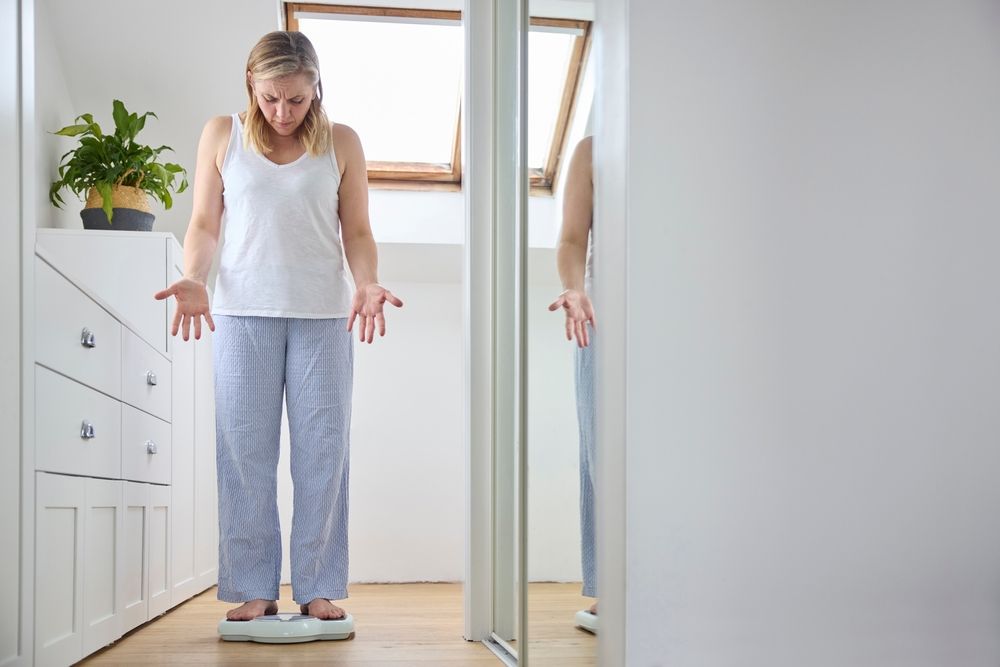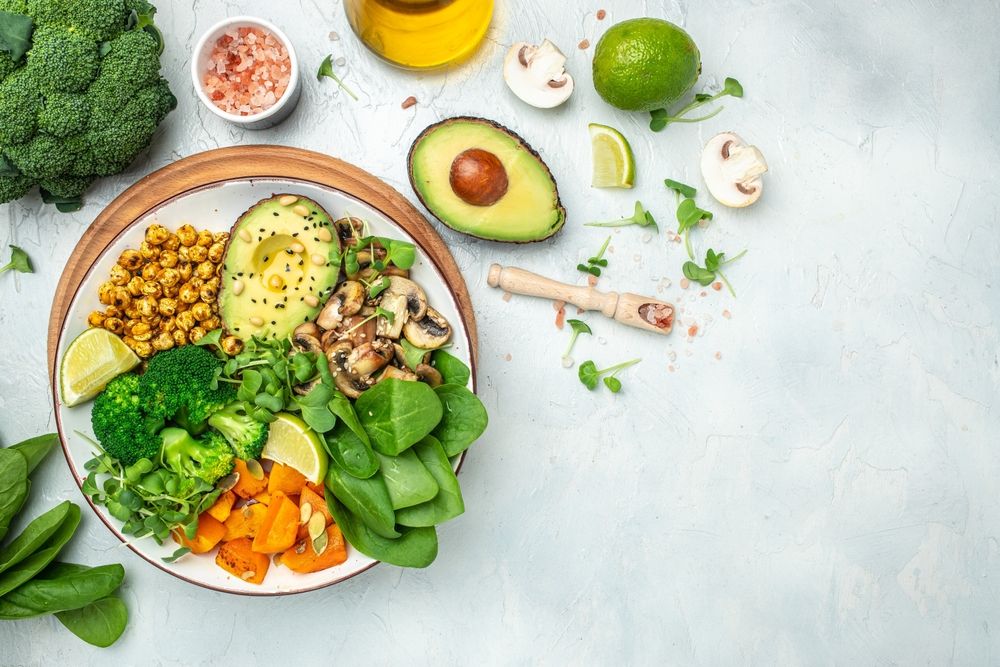There's a pressing issue regarding fiber intake in the United States. A study conducted in 2021 revealed that only a mere seven percent of U.S. adults meet their recommended daily fiber intake. Fiber is a crucial nutrient with far-reaching effects on various aspects of well-being, including digestive health, weight management, blood sugar regulation, and heart health. According to the National Institutes of Health, the recommended daily fiber intake stands at 38 grams for men and 25 grams for women. Unfortunately, the average American typically consumes just 14 grams of fiber per day. Now, you might be wondering: what are the indicators of insufficient fiber consumption? To provide answers, we consulted with Destini Moody, RDN, CSSD, LD, a registered dietitian and sports dietitian at Garage Gym Reviews. She shares ten common signs that could suggest a deficiency in this vital nutrient.
Let's discuss the two primary types of fiber: soluble and insoluble. Each type offers distinct health benefits. Soluble fiber, found in foods like oats, beans, and fruits, dissolves in water to create a gel-like substance. This type of fiber plays a role in reducing cholesterol levels and stabilizing blood sugar by slowing down the digestion and absorption of nutrients. In contrast, insoluble fiber, present in whole grains, nuts, and vegetables, does not dissolve in water. Instead, it adds bulk to stool and promotes regular bowel movements, preventing constipation. Insoluble fiber also contributes to a sense of fullness, aiding in weight management. A balanced intake of both soluble and insoluble fiber is crucial for optimal digestion and overall health.
1) You Experience Fatigue or Drowsiness Following Your Meals

Studies indicate that fiber can help mitigate energy crashes by maintaining stable blood sugar levels. Consequently, if you find yourself feeling fatigued and sluggish after meals, it may suggest an insufficient fiber intake. Destini Moody, a registered dietitian, explains, "A meal rich in fiber slows down the digestion process, leading to a gradual release of glucose into your bloodstream. This prevents sudden spikes in blood sugar, which are typically followed by crashes that result in lower blood sugar levels than before eating. If you frequently feel the need for a nap after consuming carbohydrate-heavy meals, it's likely due to inadequate fiber consumption.
2) You're Constipated
Increasing your fiber intake by incorporating fruits, vegetables, legumes, and whole grains into your diet can significantly improve your experience with constipation. Fiber contributes to stool bulk and facilitates smooth bowel movements. According to Moody, "A study demonstrated that 77 percent of individuals struggling with constipation found relief through increased fiber consumption. Insoluble fiber, found in fruits and vegetables, acts as a kind of 'scrub brush' for the digestive system, moving along the intestinal walls and promoting the flow of gut contents. This prevents digested food from becoming trapped and causing constipation. However, it's crucial to ensure adequate hydration when increasing your fiber intake, as a lack of water in the digestive tract can have the opposite effect and worsen constipation.
3) You are Experiencing Diarrhea or Watery Stools
Conversely, a rapid escalation of fiber intake without proper hydration may result in diarrhea. Hence, it's essential to strike a balance between your fiber consumption and water intake to maintain a well-functioning digestive system. Moody notes, "Insufficient fiber intake can also lead to the opposite effect in your bowel movements, as fiber can increase stool volume. This is particularly evident with soluble fiber, which can absorb fluids in the gastrointestinal tract, forming a gel-like substance. As diarrhea often occurs due to excessive water in the digestive system, having soluble fiber present can absorb this surplus fluid, aiding in the prevention of loose stools.
4) You Struggle to Quell Your Appetite

Numerous studies have highlighted the role of fiber in enhancing satiety and preventing excessive eating by adding volume to your meals. However, persistent hunger may be an indication that you need to incorporate more fiber-rich foods into your diet. Moody provides insight, stating, "Consuming a meal rich in fiber results in slower stomach emptying since fiber breaks down at a gradual pace. Additionally, fiber expands as it absorbs water in the gastrointestinal tract. Both of these functions contribute to an extended feeling of fullness. This is why if you were to replace white rice with an equal amount of brown rice, even though the calorie count and portion size remain the same, you'd likely experience greater satiety from the brown rice.
5)Your LDL-Cholesterol Levels are Elevated
Elevated levels of LDL (commonly referred to as "bad") cholesterol might indicate the need for increased fiber consumption. A 2019 study established a connection between high LDL cholesterol levels and low-fiber diets. Moody explains, "While the impact of fiber on cholesterol levels is moderate, it does yield positive results when compared to those with lower fiber intake. When combined with other lifestyle adjustments such as exercise, incorporating soluble fiber like oats into your diet has demonstrated its ability to reduce LDL cholesterol.
6) You Experience a Sense of Lethargy or Low Energy
Foods abundant in fiber offer a consistent supply of energy, effectively diminishing fatigue and sustaining your feeling of fullness. Moody notes, "The majority of the fiber we consume originates from whole grains, fruits, and vegetables. These foods also house antioxidants that are absent in meat and dairy products. While fiber intake is valuable, the antioxidants present in fiber-rich foods actively combat chronic inflammation within the body. That's why individuals who incorporate more fruits and vegetables into their diet often report feeling more energetic. If you've been grappling with unexplained fatigue or weariness, consider increasing your consumption of high-fiber foods.
7) You are Experiencing Weight-Gain Without Understanding the Cause

Research indicates a correlation between low fiber intake and weight gain. This connection arises because high-fiber foods, such as fruits, vegetables, legumes, and whole grains, typically contain fewer calories compared to meat and dairy products. Incorporating fiber-rich foods into your diet can aid in weight loss by imparting a feeling of fullness without the consumption of excessive calories. Moody highlights, "If you frequently experience blood sugar crashes due to insufficient fiber to slow down the digestive process, you may unknowingly find yourself snacking more often. This can result in a subtle calorie overconsumption, leading to unexpected weight gain. This effect can be particularly pronounced for individuals who engage in regular exercise, as physical activity can heighten hunger. As a result, one may attribute their increased appetite to being more active, rather than recognizing it as a consequence of inadequate fiber intake.
8) You are Experiencing Bloating
Destini Moody explains, "When gut health is compromised, harmful bacteria can ferment in the gut, generating gases that lead to bloating and stomach discomfort. This is where fiber plays a vital role. Various forms of fiber can function as prebiotics, serving as nourishment for the beneficial bacteria in our gut. Prebiotics contribute to improved gut health by promoting the growth and multiplication of these beneficial bacteria, ultimately alleviating digestive issues.
9) You Have a Deficiency in Specific Vitamins
A diet lacking in fiber may suggest an inadequate consumption of vital vitamins present in fruits, vegetables, and whole grains. Moody points out, "Numerous foods rich in fiber also contain essential nutrients. For instance, sweet potatoes and carrots are abundant in vitamin A, while magnesium is prevalent in oats and spinach. If your dietary choices lack nutritional diversity and you don't incorporate enough of these foods, you might discover that you're not meeting your body's requirements for these vitamins and minerals.
10) You are Experiencing Hemorrhoids
According to a study from 2021, fiber contributes to stool bulk, enhancing bowel movement regularity and lowering the risk of hemorrhoids. Moody cautions, "A deficiency in fiber intake may lead to the development of hemorrhoids. The presence of hard stools can make passing bowel movements more challenging, leading to straining during bathroom visits, which can ultimately result in hemorrhoids. Insoluble fiber, such as that found in non-starchy fruits and vegetables, functions to soften stools, reducing the need for straining.

